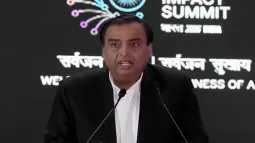
Recently, Infosys co-founder Narayana Murthy said that the youth of India need to work 70 hours per week to help the country keep pace with developed nations. His comment saw wide debate. Now, Murthy has again defended his stance and pointed to China's "996" work formula as an example.
Murthy spoke about this in the first episode of the podcast "The Record" hosted by former Infosys CFO Mohandas Pai. He said India's productivity remains low when compared with many other countries. He explained that after World War II, countries like Japan and Germany rebuilt themselves with hard work. Similarly, he feels young Indians should put in more hours at work to be competitive globally. His comments drew a mixed response. Some pointed to the long work schedule challenges, while some business leaders agreed with him. Defending his stance, he spoke about China's 996 system.
The 996 system was widely used in Chinese tech companies during China's tech boom, common in firms like Alibaba and Huawei. Under such a system, employees worked 9 a.m. to 9 p.m., six days a week, totaling 72 hours. Critics argued the schedule harmed work-life balance and created stress and fatigue; eventually, that concern reached China’s top court. In 2021, the court ruled such forced extended hours were illegal; some reports indicate the ruling has not been fully enforced.
Murthy spoke about the system once again when talking about India's growth. He told his audience, "China follows 9-9-6. It means 72 hours of work per week. I think India's youth also should follow this." He has opined that first, young workers must build up their careers before thinking about work-life balance. He said continuous effort will enable India to leapfrog China in manufacturing and other sectors.
Murthy said India is growing at 6.57 percent, which is reasonable. However, he added that India will have to demonstrate a strong commitment, as this country has to compete with China, whose economy is six times bigger. He also said progress becomes possible only when individuals set high standards for themselves.













